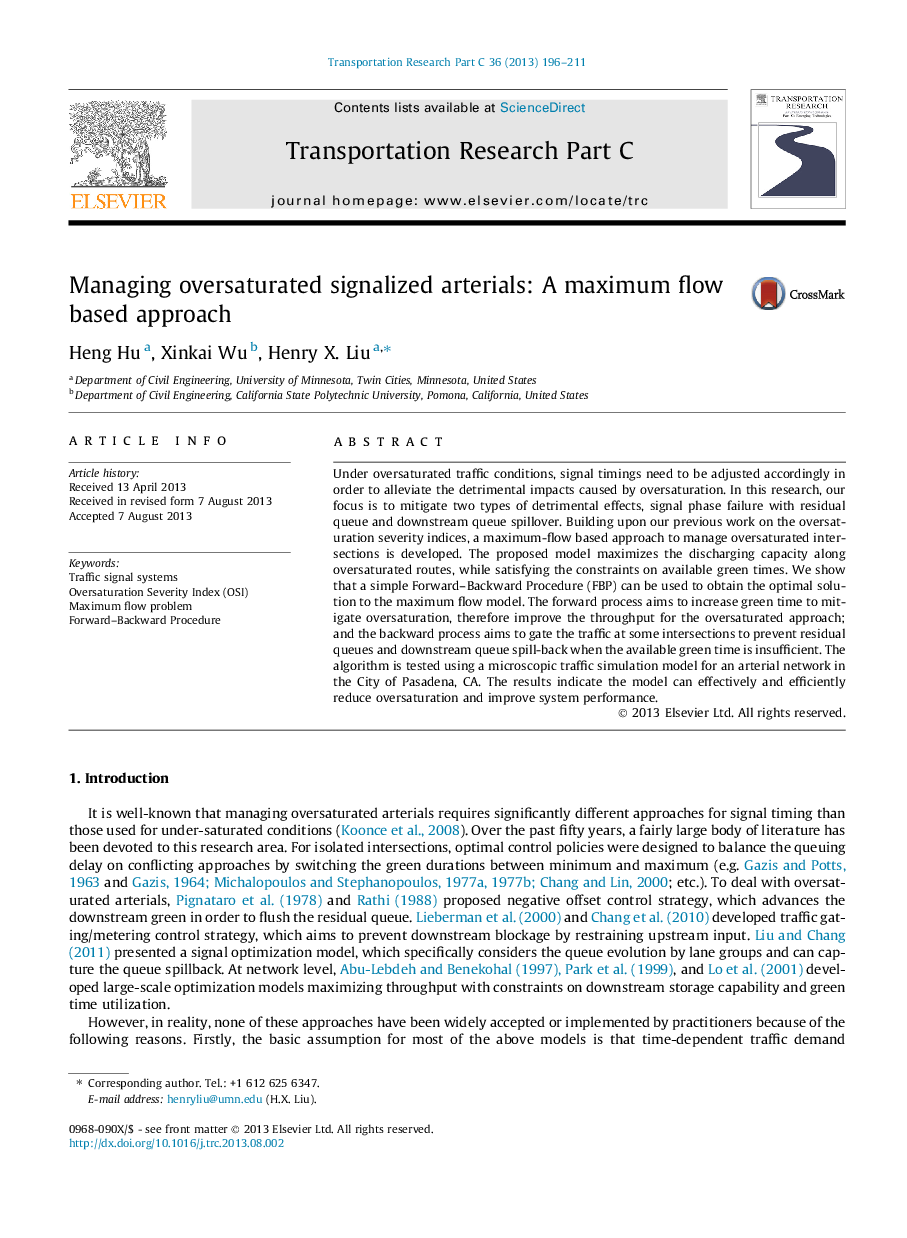| Article ID | Journal | Published Year | Pages | File Type |
|---|---|---|---|---|
| 6937261 | Transportation Research Part C: Emerging Technologies | 2013 | 16 Pages |
Abstract
Under oversaturated traffic conditions, signal timings need to be adjusted accordingly in order to alleviate the detrimental impacts caused by oversaturation. In this research, our focus is to mitigate two types of detrimental effects, signal phase failure with residual queue and downstream queue spillover. Building upon our previous work on the oversaturation severity indices, a maximum-flow based approach to manage oversaturated intersections is developed. The proposed model maximizes the discharging capacity along oversaturated routes, while satisfying the constraints on available green times. We show that a simple Forward-Backward Procedure (FBP) can be used to obtain the optimal solution to the maximum flow model. The forward process aims to increase green time to mitigate oversaturation, therefore improve the throughput for the oversaturated approach; and the backward process aims to gate the traffic at some intersections to prevent residual queues and downstream queue spill-back when the available green time is insufficient. The algorithm is tested using a microscopic traffic simulation model for an arterial network in the City of Pasadena, CA. The results indicate the model can effectively and efficiently reduce oversaturation and improve system performance.
Keywords
Related Topics
Physical Sciences and Engineering
Computer Science
Computer Science Applications
Authors
Heng Hu, Xinkai Wu, Henry X. Liu,
